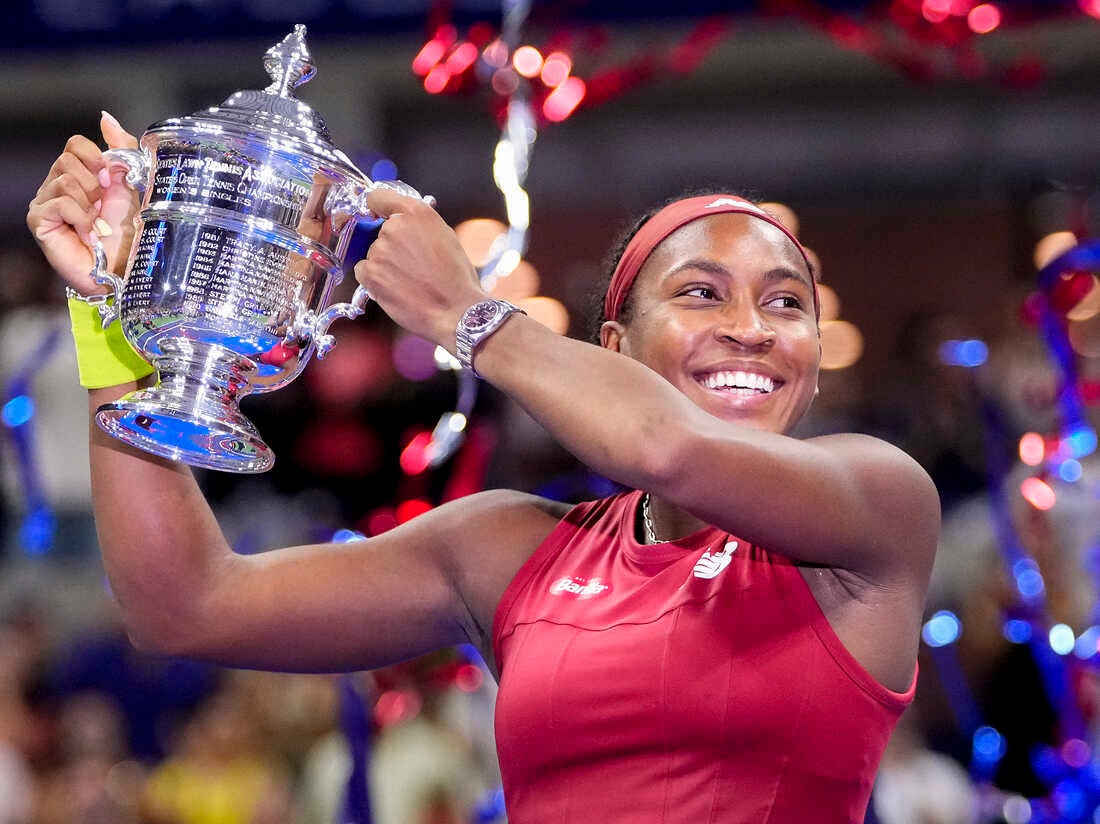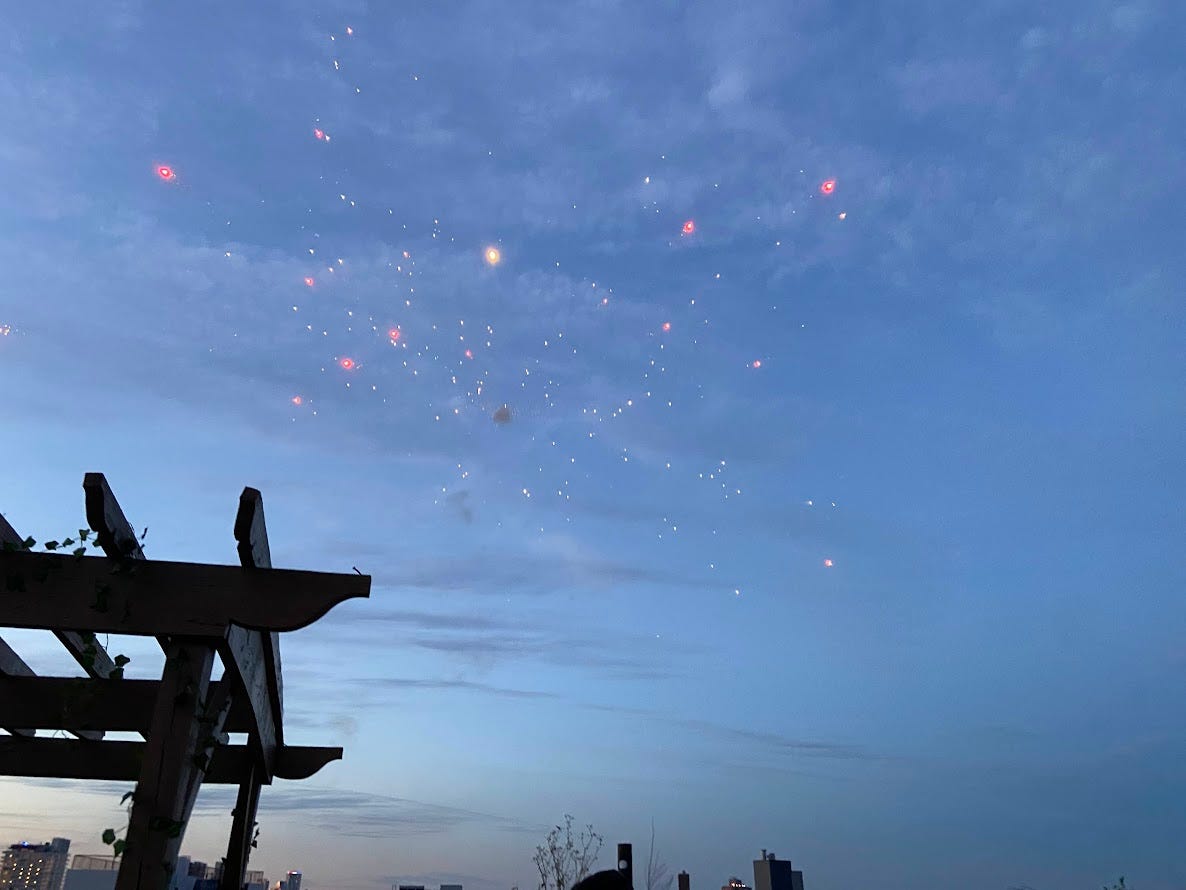Celebrating a small win: my fifteenth post 🎉 When I started this project in Feb 2023, I didn’t really know where it was going or if I’d still be doing it six months from now. I’m very grateful that I decided to keep going and all of you have decided to join me for the ride. Thank you to everyone who’s read any of my articles. Your support means more than I can describe. Now, onto the scheduled programming…
I’ve been thinking a lot about dreams recently.
In many ways, this sabbatical is a search for a fresh dream, something new to work towards, since my former dream of becoming a venture backed social impact startup founder is dead. Yet there’s something scary about crafting a new dream: a fear that this new dream, when it takes hold of me, will mark the beginning of my undoing. I’m scared that in a few years, I’ll dissolve into another spiral, needing to (again) reframe my relationship with achievement. I’m worried that I’m going to make the same mistake rather than learning from my past.
This is especially salient with a lot of the Buddhist and Hindu texts that I’m reading that emphasize that suffering arises when we get attached to outcomes. If a dream is a snapshot of a desired outcome and suffering arises from focusing on outcomes, then is it possible to work on dreams without suffering?
Or is suffering par for the course?
Evolution of my relationship with dreaming
My dreams haven’t always felt like mechanisms of suffering. When I was a kid, my dreams were another avenue for my overactive imagination, creating fun new games to play with my cousins or re-enacting the nighttime Hindu mythological stories narrated by my grandparents.
As a teenager, dreaming became a form of escape, a safe space for me to imagine a different, better life for myself. When I was 13, and had trouble falling asleep, I would imagine what 25 year old me would be like. I imagined her “beautiful”- no glasses, braces, or acne- wearing stylish clothes in the middle of some fabulous city with fabulous friends. She would have some high powered job, maybe even a boyfriend. More than anything, she would be desired in all areas of her life, a promise of a future belonging, that made the present-day suffering worthwhile. That hope would keep me going for the rest of the day.
In college, dreams transformed from a sense of escape to a tool for control. Dreams helped me feel like I had something that I was working towards, like my life mattered. On the flip side, my dream also became a source of anxiety. What would happen if my dreams never materialized? It created so much pressure in my day to day life, as little mistakes felt like they had colossal stakes. I felt overwhelmed by the pressure, yet too scared of the emptiness to give up on my dream.
Dreams & Detachment, Take Two
I do think dreams play an important role in visioning work, giving us the space to imagine different versions of life without the constraints of realities. It’s a powerful way for us to viscerally feel our way into what we want, giving us a north star to work towards. In many ways, it’s one of the first steps towards self actualization, which is a core human need.
Yet we can’t hold so tightly onto our dreams such that we might suffocate it and ourselves in the process. Our ability to realize our dreams is a combination of hard work and foresight, but more than anything, it’s an insane amount of luck. Given that the odds are not always in our favor, our dream can’t just be our north star because of where it leads. It also needs to be our dream because there’s inherent meaning in the path that we’d have to traverse to get there.
It’s why oftentimes when we realize our dreams, we feel emptier than when we first embarked on the journey, because we forgot to stop and feel fulfilled along the way.
Tennis and Dreaming
One example that really solidified this for me was Coco Gauff’s interview after her US Open finals win against Aryna Sabalenka, when at 19, she became the youngest US Open champ since Serena in 1999. For context: she first attended this tournament in 2012, and has played every year since 2019, barely making the preliminary rounds (except in 2022 and 2023). When asked about her win at the US Open, she commented: “I don’t pray for results. I just ask that I get the strength to give it my all. Whatever happens happens. I’m so blessed in this life.”
In other words: dream hard and give your dreams a fighting chance, but at the end of the day, detach yourself from the outcome and find fulfillment and meaning in the journey. And when the dreams are achieved, when you finally reach the goal post that you’ve dreamt about, consider that the cherry on top.

Bringing it Back
As I progress through the sabbatical, I’m finding the courage to dream again, outlining four potential short and long-term dreams. As I “try” on the dreams, I’m asking myself about the journey as much as the destination.
Will it feel worth it when I achieve the dream?
Can I aim for this dream without losing myself and the journey in the process?
Do I like the grind as much as the end outcome?
I don't yet have the answers, but I finally feel like I’m asking the right questions.
Thing of Note
Recap: This section is my way of bringing attention to a thing, person, or idea that’s meaningful/related to the mission of this newsletter. This week, I want to highlight Immortal King Rao by Vauhini Vara
I’ve had a little more time to read recently and my latest read is Immortal King Rao by Vauhini Vara. The novel itself reads like a dystopian dream. It tells the story of King Rao, the inventor of the Coconut company, which invents every kind of electronic imaginable (think of an Apple/Google/Meta hybrid), tracing his origins from a family or Dalit farmers to moving to the US for grad school and meeting his co founder wife Margie to starting Coconut to eventually taking over running the world as the US starts falling apart due to climate change and racial tensions. It’s a sweeping tale of a future that seems semi-realistic (which is scary and anxiety provoking in its own way) but also a story about creation (the importance of getting people to want a thing as much as making that thing), ambition (especially as a form of escape), and dangerous woman (aka Margie, and to a certain extent, King’s daughter). There’s some parts of the book that get pretty slow, especially towards the end, but I found the character development and premise compelling.
Thanks for Reading!
I’m on a journey to create a blended career across the creative arts, tech, and business. This newsletter is my way of sharing my reflections, thoughts, and advice along the way. Here are some ways to support or further collaborate together!
I would love feedback on this post.
If you want to see more content like this, heart the post.
Hearing from readers also gives me a ton of energy. Drop a comment if your relationships to your dreams have changed.
If you’re figuring out your own career transition or looking for more support in your product career, consider working with me as a coach. Here’s my calendly if you want to get the ball rolling.
Note: I’m a member of the Amazon Associates program. This means that I may make a small commission if you purchase





Congrats on essay #15!
Recently, I've found a more tactical way to pressure test my dreams and that's to bring a healthy dose of reality to it. For example: if I come across a really interesting opportunity, I'll write out what aspects of it stick out to me that makes it seem like a dream opportunity and then write out what are realities that I'm not considering – having the two side by side is a great way to ensure I'm taking a balanced view when evaluating things to say yes to as they come into my orbit
Book 📕 recommendation: The Real Work by Adam Gopnik. It’s about mastery and framing accomplishment vs achievement/outcomes. Coming from the corporate world, you are trained to think measurable outcomes and this is a good discipline buts it’s not a 1:1 framework for life and the intersection of $$, fulfillment, and purpose. This is part of the journey we are going through.